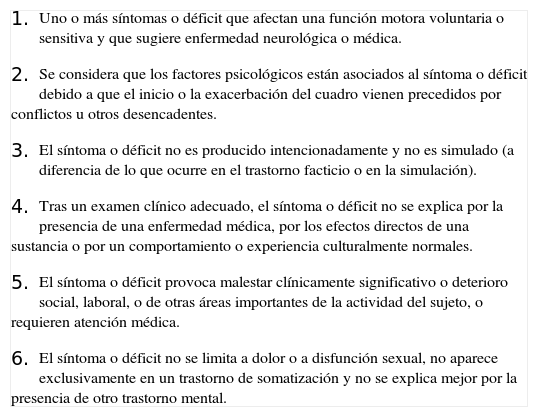Una gestante de 37 años acudió al hospital al iniciar el trabajo de parto. Como antecedentes personales de interés refería una depresión con un intento autolítico unos años antes, estando eutímica sin necesidad de tratamiento al ingreso; y un legrado por un aborto. La paciente solicitó analgesia epidural y horas después de realizar la técnica presentó anestesia en zona dorsal del pie y dificultad para la flexión dorsal del mismo. Tras descartar patología orgánica, se consideró el diagnóstico de trastorno conversivo, una enfermedad psiquiátrica de gran incidencia pero habitualmente infradiagnosticada y que se caracteriza por uno o más déficit neurológicos que sugieren enfermedad orgánica, que no son intencionados ni fingidos y que no pueden ser achacados a una enfermedad médica, a los efectos de una sustancia tóxica o a un comportamiento culturalmente normal; causando un deterioro significativo a nivel clínico, social y ocupacional.
A 37-year-old woman came to our hospital at the beginning of labor. She reported a history of depression with attempted suicide some years earlier and had also undergone dilation and curettage following an abortion; on admission to our hospital, she was euthymic and not receiving treatment. The patient requested epidural analgesia. Several hours later, she reported dorsal foot numbness and difficulty performing dorsal flexion. After an organic cause had been ruled out, a diagnosis of conversion disorder was considered. The incidence of this psychiatric disorder is high, though it is usually underdiagnosed. Conversion disorder involves at least 1 neurologic symptom suggestive of organic disease. Symptoms are not feigned and cannot be ascribed to a medical disease, the effects of a toxic substance, or culturally normal behavior, yet there is significant clinical, social, and occupational deterioration.
Artículo
Comprando el artículo el PDF del mismo podrá ser descargado
Precio 19,34 €
Comprar ahora








